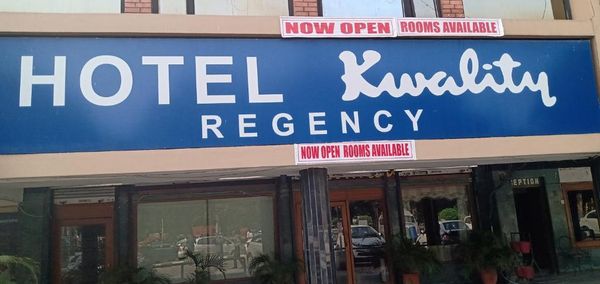A clever blend of REM sleep and remedy for insomnia Treatment
 Spy Soe
21 May, 2025
10 mins read
17
Spy Soe
21 May, 2025
10 mins read
17

Sleep. The word alone conjures images of peace, restoration, and balance. Yet, for millions of people across the globe, restful sleep remains elusive. Insomnia is more than a mere inconvenience—it's a widespread health issue affecting mental, physical, and emotional well-being. As people search for sustainable and effective treatments, a new concept is emerging at the intersection of sleep science and natural remedies: REMedy, a clever blend of REM sleep and remedy that offers a fresh perspective on tackling insomnia.
This comprehensive guide delves into the science of REM sleep, the challenges of insomnia, and how both conventional and alternative treatments—ranging from insomnia meds to mindfulness—can work together in harmony. It's time to rethink how we treat insomnia—not just as a disorder, but as a disruptor of one of our most essential biological needs.
Understanding REM Sleep: The Brain’s Dream Factory
Rapid Eye Movement (REM) sleep is a phase of the sleep cycle characterized by heightened brain activity, vivid dreams, and muscle atonia. It typically begins about 90 minutes after falling asleep and recurs in cycles throughout the night. REM sleep plays a crucial role in:
- Emotional regulation
- Memory consolidation
- Cognitive functioning
- Creative problem solving
While all stages of sleep are important, REM sleep has a unique influence on mental health. People deprived of REM sleep often report irritability, poor concentration, and increased stress. In chronic insomniacs, reduced REM sleep is frequently observed, suggesting that its restoration may be key to effective treatment.
The Epidemic of Insomnia
Insomnia isn't just a matter of tossing and turning for a night or two. Chronic insomnia is diagnosed when a person experiences difficulty falling or staying asleep for at least three nights a week over three months. It affects approximately 10–30% of adults globally and is associated with:
- Increased risk of depression and anxiety
- Heart disease and hypertension
- Weight gain and metabolic issues
- Reduced productivity and impaired judgment
The modern world is a perfect storm for insomnia. Screen exposure, stress, poor dietary habits, and erratic schedules disrupt our circadian rhythms and impair the body’s ability to enter restorative sleep stages, including REM.
Conventional Treatments: The Role of Insomnia Meds
Pharmaceutical solutions for insomnia—commonly referred to as insomnia meds online —are a go-to for many struggling with sleep. These include:
- Benzodiazepines (e.g., temazepam)
- Non-benzodiazepine hypnotics (e.g., zolpidem, eszopiclone)
- Melatonin receptor agonists
- Orexin receptor antagonists
These medications can be highly effective in the short term and offer immediate relief, particularly for acute insomnia. However, they are not without drawbacks. Common side effects include dizziness, daytime drowsiness, dependence, and memory issues. Long-term use can lead to tolerance, meaning higher doses are needed for the same effect.
It's important to note that while insomnia meds are a critical tool in the treatment arsenal, they are most effective when combined with lifestyle changes and behavioral therapies.
Beyond Pills: The Rise of Holistic Remedies
This is where the concept of REMedy shines. Rather than relying solely on medication, a REMedy-based approach incorporates both the science of REM sleep and the art of holistic healing. Here are some non-pharmaceutical methods proven to enhance sleep quality:
1. Cognitive Behavioral Therapy for Insomnia (CBT-I)
CBT-I is a structured, evidence-based therapy that targets the thoughts and behaviors disrupting sleep. It includes techniques like:
- Sleep restriction therapy
- Stimulus control
- Relaxation training
- Cognitive restructuring
Studies show CBT-I can be as effective as medication in the short term and more effective in the long term. It’s often recommended as a first-line treatment by sleep specialists.
2. Melatonin and Herbal Supplements
Melatonin supplements help regulate the circadian rhythm, especially useful for people with delayed sleep phase syndrome or jet lag. Other natural sleep aids include:
- Valerian root
- Chamomile
- Lavender
- L-theanine
- Magnesium
These can support sleep onset and depth, potentially improving REM cycles without the side effects of prescription insomnia meds.
3. Mindfulness and Meditation
Mindfulness meditation calms the sympathetic nervous system, promoting relaxation and reducing sleep latency. Studies show that regular meditation improves both sleep quality and quantity by reducing rumination and nighttime anxiety.
4. Exercise and Sleep Hygiene
Regular physical activity enhances sleep drive and promotes more time in deep and REM sleep stages. Coupled with solid sleep hygiene (consistent bedtimes, no screens before bed, cool and dark sleep environments), these lifestyle adjustments create a foundation for sustained, quality sleep.
The REMedy Protocol: A Blended Approach
Here’s what a sample REMedy protocol might look like for someone with chronic insomnia:
- Initial Evaluation: Consult with a sleep specialist or primary care provider to identify any underlying medical or psychological causes.
- Medication (If Needed): Use insomnia meds for short-term stabilization under medical supervision. Ideal for those with severe sleep deprivation or high-stress periods.
- Begin CBT-I: Implement cognitive behavioral therapy to address sleep habits and mental patterns interfering with rest.
- Supplement with Natural Aids: Use melatonin, magnesium, or other herbs to support circadian alignment and relaxation.
- Lifestyle Optimization: Introduce consistent exercise, mindful eating, and digital detox routines. Maintain a sleep journal to track patterns.
- Mind-Body Techniques: Engage in daily meditation, progressive muscle relaxation, or gentle yoga before bed.
REM Sleep as a Biomarker of Healing
One of the most exciting developments in sleep science is the recognition of REM sleep as a biomarker for sleep restoration. When patients begin to report vivid dreams, it often signals a return to healthy REM cycles. Therapies—both medical and holistic—that enhance REM sleep can be especially powerful in long-term insomnia recovery.
Tracking REM sleep through wearable devices (e.g., Oura Ring, Fitbit, Apple Watch) is becoming more popular. These devices provide valuable insight into sleep architecture and can motivate behavioral changes that support the REMedy framework.
A Word on Personalized Sleep Care
No two cases of insomnia are alike. What works for one person may be ineffective or even counterproductive for another. Personalization is key. Some may benefit more from insomnia meds, while others respond better to holistic practices. The beauty of the REMedy approach lies in its flexibility—it’s not an either/or philosophy but a both/and mindset.
Conclusion: Toward a More Restful Future
Sleep is a pillar of health, as critical as nutrition and exercise. Yet, it is often the first thing sacrificed in our fast-paced lives. Insomnia, in all its forms, is a complex condition that deserves a nuanced, integrative approach. The REMedy model champions the best of both worlds—grounded in scientific understanding of REM sleep and enriched by natural, holistic remedies.
As we move into an era where health is viewed through a multifaceted lens, combining insomnia meds with non-invasive, lifestyle-driven solutions may offer the most promise. It’s time to move beyond fragmented solutions and embrace sleep care that is comprehensive, compassionate, and personalized.
So tonight, as you prepare for bed, consider what your body—and your mind—need to truly rest. The answer may just lie in the perfect REMedy.
Written By:
Spy Soe



Hotels at your convenience
Now choose your stay according to your preference. From finding a place for your dream destination or a mere weekend getaway to business accommodations or brief stay, we have got you covered. Explore hotels as per your mood.





